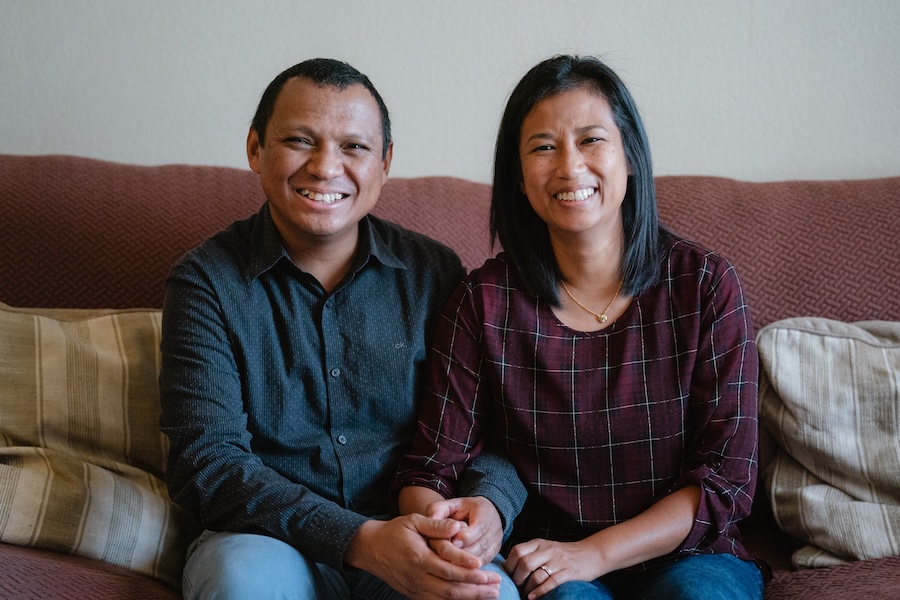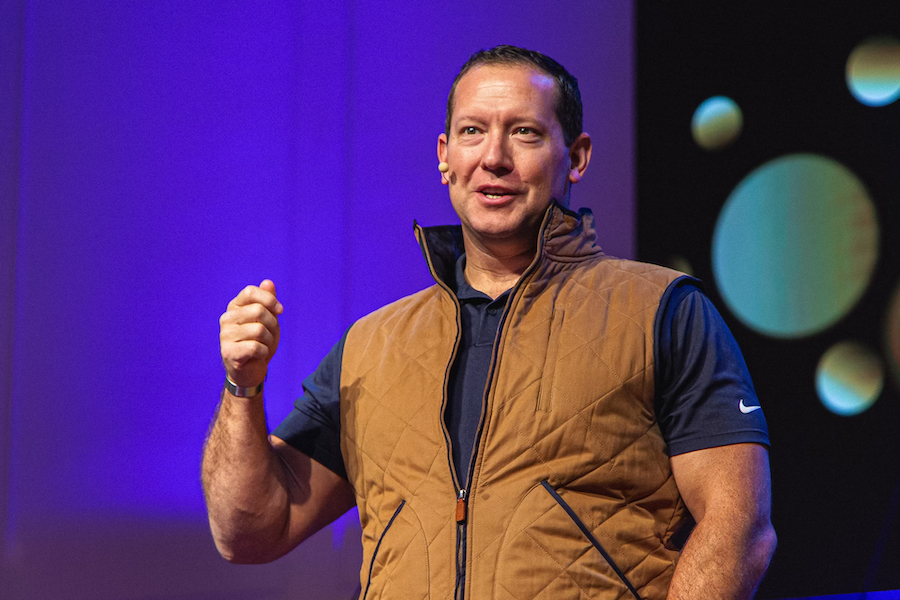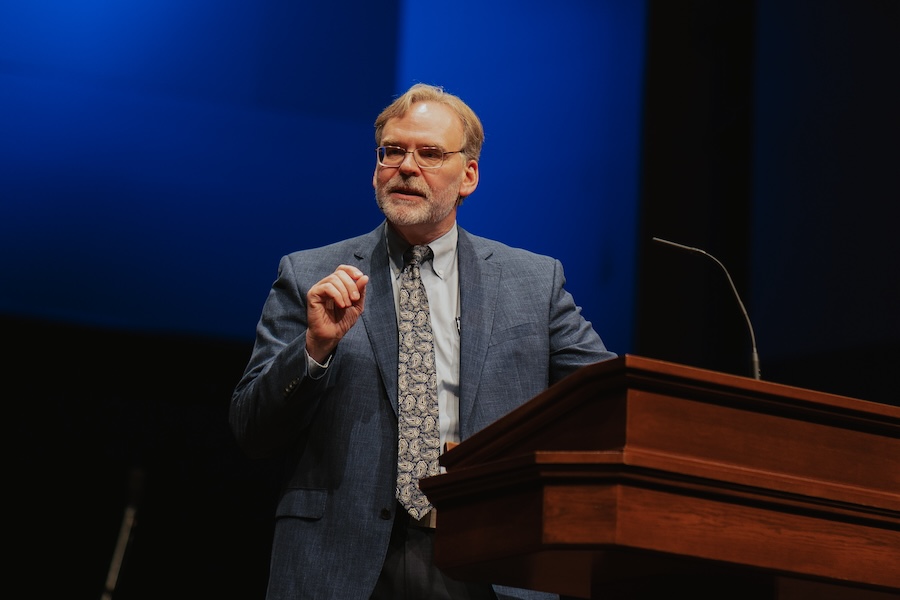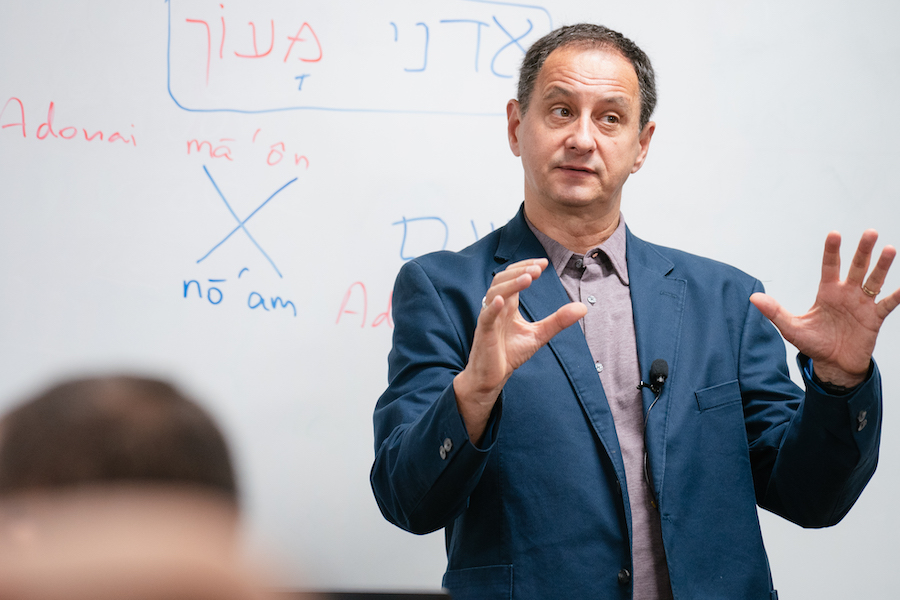Yang’s ‘waste’ was God’s preparation to lead Chinese Language Programs
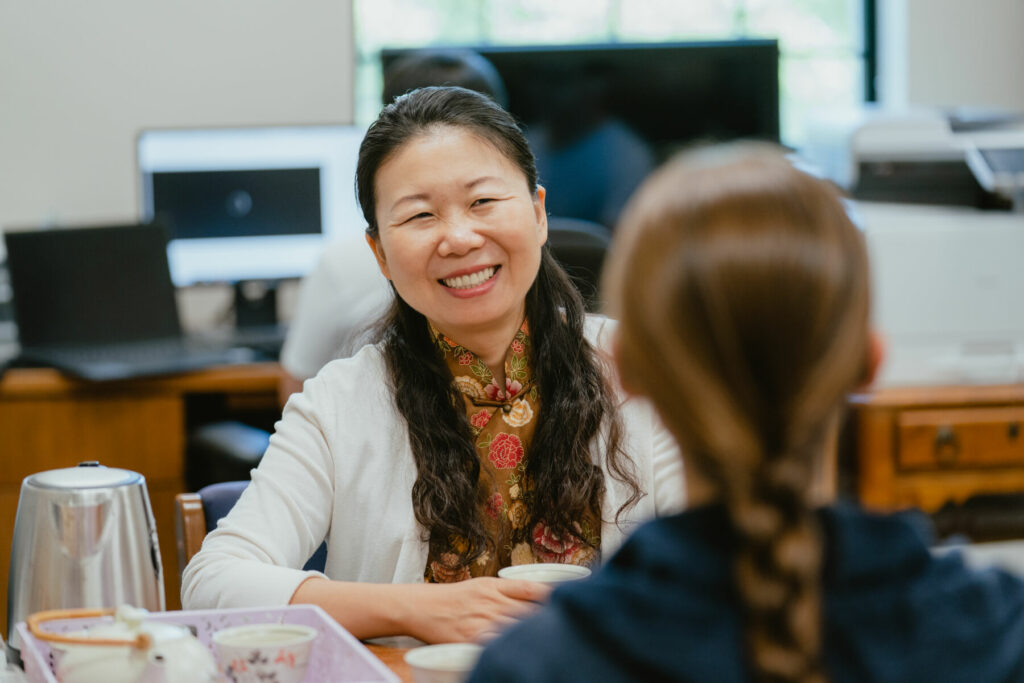
When the Lord called Hongyi Yang, associate professor of World Christianity at Southwestern Baptist Theological Seminary, to ministry she thought her previous education was a “waste.”
Yang, who has taught at Southwestern since 2016, came to the United States in 2000 as an international student to begin studying in the field of media studies at the University of North Texas’s department of radio, television, and film. She had already earned a Bachelor of Arts in film and TV and a Master of Arts in media studies, both from Beijing Normal University. However, her concentration at UNT was in documentary production, a field where she had worked for six years before beginning her studies in the U.S.
While studying in the North Texas area, Yang heard the Gospel. She grew up in East Asia with an “atheistic education” where the people “don’t believe there’s a God, [or that] there’s a Savior, so you need to strive for yourself. You depend on yourself.” Yang explained when she came to the U.S. she was “shocked” by the number of churches and that “people even believe in God.” She said she “mocked Christians” and “rejected their invitation to go to church until I encountered something.”
“I just felt like my life was meaningless, so I started to have all these questions, which are not, cannot be answered in this system of atheism,” Yang remembered. “So I was searching answers for the meaning of life.”
A Christian girl invited her to a conference in Dallas that was attended by several thousand participants and one of the two speakers was an East Asian Christian scientist who was formerly an atheist, Yang recalled. She said the speaker emphasized “the love of God, the Father” as he explained, “God is like a Father waiting for us to return to Him.”
The idea was “very shocking to me,” Yang said of her thoughts at the time. “I’ve never thought about God is like our Father. If there is a God, He is far from me, He’s high up and I don’t think He’s like a Father to me.”
However, at the end of the conference, she remembered, the speaker gave an altar call and she went forward to accept Christ as Lord and Savior and also “dedicate my life to [the] Lord with full-time Christian vocation” though at the time she was “not really clear” about what that meant. The passage of Scripture the speaker preached from was Romans 12:1-2, which Yang said God used as He “called me out of this spiritually dead life, but at the same time, also my vocational course.”
Two years later she graduated from UNT with a Master of Science in radio, television, and film, and began looking for a job, but realized, “I was not as interested in this field.”
As she saw people come to faith in Christ she experienced “joy,” and, at the encouragement of her pastor, she enrolled at Southwestern Seminary, where she earned a Master of Arts in theology in 2007. The focal passage preached at her graduation ceremony was Romans 12:1-2, which was also the same passage of Scripture preached at her Doctor of Philosophy graduation service in 2016.
However, it was in 2016 that Yang realized her previous education was not a “waste” but was part of God’s preparation to serve.
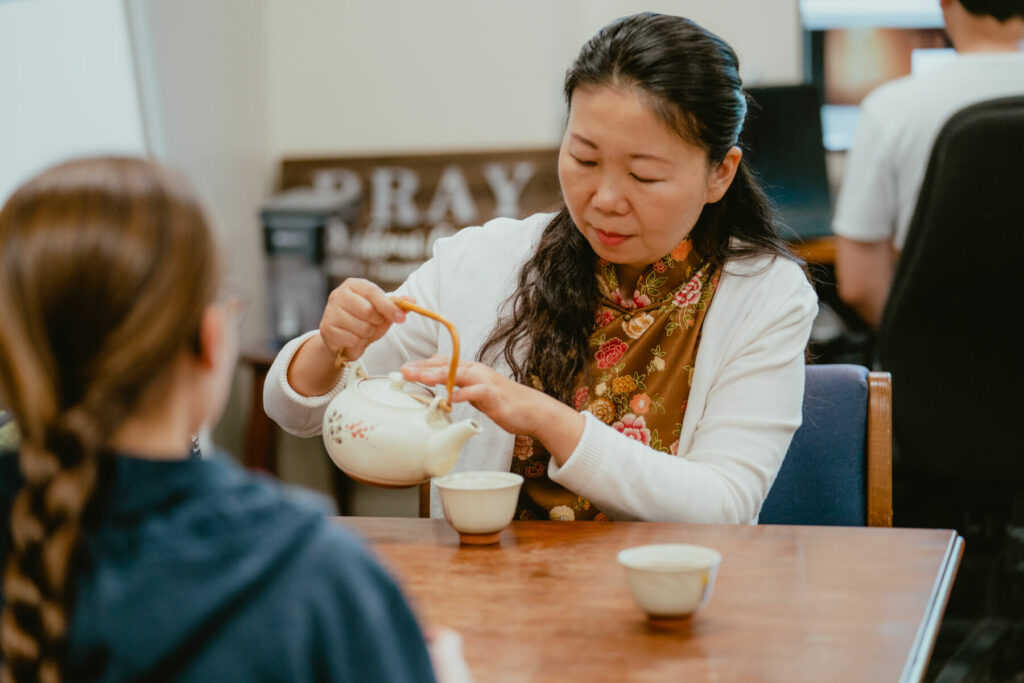
Hongyi Yang, associate professor of World Christianity and director of Chinese Language Programs at Southwestern Seminary, has served at the Fort Worth institution since 2016. On campus she works to make connections with female students from East Asian cultures.
At the time Southwestern leadership had been looking for someone with theological training, who spoke Mandarin, and who could provide video production skills for the seminary’s desire to launch a Mandarin Language Program that would equip Mandarin speakers in theological education. Yang was that person.
Yang began serving as the director of Chinese Language Programs in 2016. As director of the program, she provided oversight of the team that produced the videos for the 36-hour Master of Theological Studies degree with closed captioning in Mandarin.
The program celebrated its first graduates in the fall of 2022, which included 38 students, five of whom were legally blind.
Through the six years it took to complete the project, Yang said it required “a lot of endurance, and patience, and faithfulness.”
“My only goal is to finish what God entrusted [to] me,” Yang said about leading the team. “I know He entrusted me [with] this task and I need to finish it. And He will – He will finish it. He will.”
This fall the program launched the Master of Divinity degree in Mandarin with 20 students.
Yang’s investment in the students has been through the “standard” she uses in video production, including in the translation and video quality. She explained that she communicated to her team that the “students deserve the best and our God deserves the best, as well.”
The team strives “for excellence because the students” have been called by God and “they deserve the best effort,” Yang said. She added this includes the blind students in the program because “their desire to learn God’s Word is very encouraging” which “drives us to do our best.”
Yang also works with the teaching assistants (TA) assigned to the courses to care for the students. The TAs pray for the students and do what they can to encourage them. Yang attributes the program’s high retention rate – 90 percent – in part to the connection the TAs make.
The investment Yang makes in the lives of students includes female students from East Asian culture who are in person on campus. Grace Choi* explained that the relationship Yang has made with her is one the professor initiated.
Choi said Yang asked her to join her for lunch and asked to hear her testimony. When Choi’s father became ill in East Asia, Yang began to “pray for me” and “encourage me,” she said. Choi recalled that Yang consistently told her that she was praying for the student.
Yang has also reminded Choi to seek the Lord in things, including finances. Choi recalled one semester when she said she was “worried about my tuition because I didn’t have enough money to pay.”
“I shared this with her,” Choi remembered. “I said, ‘I’m just so overwhelmed. I don’t know what I am going to do, and I’m just so stressed.’” Choi said she shared with Yang her plans, but said that Yang asked her, “What about you just pray and pray [and] trust God and ask God to show you what He wants you to do?” Yang prayed alongside the student and Choi said a couple of months later she learned she received a scholarship.
Choi recalled that Yang told her during that time, “Do not ask people to help, always ask God.” Choi said this is different than her culture where a person “thinks about” asking relatives and friends for help and “use our own strength and energy, but we need to rely on the Lord.”
“That’s what she taught me,” Choi concluded.
As Yang reflected on her life since coming to Christ and being called to ministry she concluded, “It’s just amazing. … I even didn’t know He has been prepar[ing] me to do this job, to do this project, like 20 years.”
*Name changed for security.
